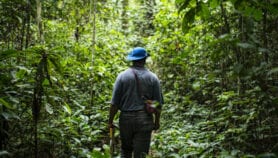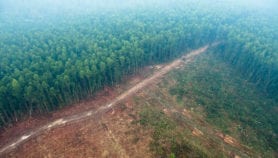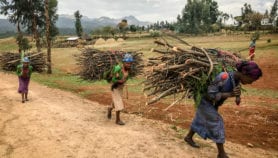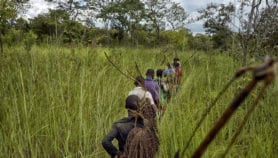Send to a friend
The details you provide on this page will not be used to send unsolicited email, and will not be sold to a 3rd party. See privacy policy.
The latest IPPC report offers an opportunity to put climate change policies into development agendas, say Gary Yohe and Rodel Lasco.
The contribution of Working Group II to the Fourth Assessment Report of the Intergovernmental Panel on Climate Change (IPCC) ― approved in Brussels in early April ― offers a roadmap by which climate change can find its way onto the planning and implementation agendas of finance ministries around the world.
It shows how climate policy objectives are in fact closely linked to development goals.
As contributing authors of the report, we fully support its recommendations and urge the global community to act now to incorporate climate change into development planning to avoid investment in unsustainable programmes.
Bad news for the developing world
The report confirms that developing countries will be the most vulnerable to climate change because of their high exposure to potential impacts and low capacity to adapt. It also notes that climate has been changing faster than previously anticipated, so thresholds of dangerous impacts are approaching more quickly than forecast only five years ago.
As examples of both conclusions, the report notes that an additional one degree Celsius of warming is predicted to cause up to a five per cent decline in wheat and maize productivity in India, and leave an additional 1.2 billion people in Asia — and 250 million in Africa — facing water shortages.
Another degree of warming and coastal flooding would pose a significant risk to up to two million more people in Asia, water scarcity would affect another 1.6 billion people in Asia and Africa, and China would face a drop of 12 per cent in rice productivity. Even more warming and the pace of increased exposure will, of course, accelerate.
The new report also concludes that vulnerability to the impacts of climate change will be amplified in areas such as Mumbai in India, Rio de Janeiro in Brazil and Shanghai in China, that are already under stresses such as land degradation or exposure to disease.
Climate change can itself be a source of stress — a single location can experience changes in precipitation, temperature, sea level rise and the intensity and frequency of cyclones. For example, the southeastern coast of Africa will confront rising seas, escalating temperatures, extreme winds, changes in the intensity of El Niño events and more variable precipitation patterns.
Linking goals
The report concludes that climate change will impede progress toward meeting the Millennium Development Goals (MDGs), and suggests that the entire world will have to adapt to some degree.
But supporting the capacities of communities to adapt to climate change would be entirely consistent with making progress toward achieving the MDGs.
Indeed, investments in eradicating extreme poverty and hunger, providing primary education, promoting gender equality, combating HIV/AIDS and other diseases, ensuring environmental sustainability and expanding global partnerships for development could all be essential components of an effective climate policy.
Each investment, while valuable in its own right, also holds the potential to strengthen the underlying determinants of adaptive capacity.
Instead of being yet another problem, the convergence of goals shows why coping with changes in climate can be yet another good reason to promote sustainable development.
Moving towards mitigation
Adaptation alone will not be able to accommodate unabated climate change. For some developing countries whose carbon emissions are low, the need for mitigation may not be an immediate problem.
But other countries like Brazil, China and India — where substantial industrial development has already taken place and current and predicted greenhouse gas emissions are more significant — considerable mitigation policies will need to be put into place in the future.
These countries have historically been reluctant to commit to emissions standards — an understandable position in a world where the largest contributor to atmospheric contributions, the United States, has thus far stayed on the sideline.
But the tide is turning, even in North America. As shown by the new report, vigorous climate policies can be supported by hard evidence and should therefore be expected by everyone — developed and developing nations alike.
Gary Yohe and Rodel Lasco are coordinating lead authors of the chapter on perspectives on climate and sustainability in the Working Group II’s report to the IPCC. Gary Yohe is a professor of economics at Wesleyan University, United States. Rodel Lasco is a program coordinator for the World Agroforestry Centre in the Philippines.













